Online BSN to Doctor of Nursing Practice
Overview
Our BSN to DNP Can Prepare You for New Leadership Opportunities.
With our online program, you can earn your Doctor of Nursing Practice degree in as few as 40 months and position yourself to take on a high-level role in health care.
- Enhance your knowledge of patient care, policies and procedures, and research methods
- Choose from three start times per year and complete your coursework 100% online
- Choose from six nurse practitioner tracks
You may be eligible for a one-time Rise at Regis credit, valued at $1,025, if you start your journey this summer. There’s a 6-credit enrollment requirement.
Calendar
Application Deadline:
March 30, 2026
Upcoming Start Date:
May 4, 2026
Why Regis for Your Online BSN to DNP?





Online BSN to Doctor of Nursing Practice at a Glance
Pediatrics (PNP)
Focus on a variety of health needs and issues in an outpatient, primary care pediatric setting.
Family (FNP)
Develop skills and knowledge to work with every age in a family practice environment.
Psychiatric Mental Health (PMHNP)
Use contemporary psychotherapy modalities and knowledge of psychopharmacology to provide care to mental health clients across the lifespan.
Women’s Health (WHNP)
Learn to care for women at all life stages, including primary care, gynecological, and obstetrical health care needs.
Adult Gerontology – Primary Care (AGPCNP)
Learn to provide care for chronic illness and aging in adults, including polypharmacy management, palliative care, and end-of-life considerations in a primary care setting. Formerly referred to as “AGNP”.
Adult Gerontology – Acute Care (AGACNP)
Get the skills to help assess and manage acutely ill adult patients in an acute care setting. AGACNPs can also serve on the front lines during an epidemic or pandemic.
5 Reasons to Earn Your Online DNP
#1
#2
#3
#4
#5

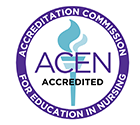
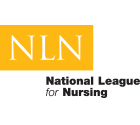
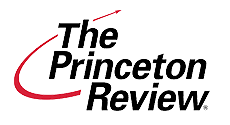
“Best Regional Colleges”

Careers with a BSN to Doctor of Nursing Practice
Data from the U.S. Bureau of Labor Statistics predicts an astounding 45% employment growth rate between 2019 and 2029 for nurse practitioners, nurse anesthetists, and nurse midwives. As of 2021, the median salary for the DNP-prepared nurse was $103,662.*
The American Association of Colleges of Nursing (AACN) has called for a doctoral level (DNP) education to become the requirement for advanced practice nursing. Similarly, the Future of Nursing report issued by the Institute of Nursing has called for nurses to take on greater responsibility to handle the growing number of patients requiring care as populations age and we navigate the challenges brought forth throughout the recent pandemic. The online BSN to Doctor of Nursing Practice degree at Regis College can help put you at the forefront of health care, prepared to take on high-level positions and help meet the rising demand.
As a DNP-credentialed nurse, you may have career opportunities such as:
Nurse Practitioner
Median wage: $111,680*
Nurse practitioners (NPs) are highly educated and hold higher levels of autonomy in their practice. NPs dedicate their practice to specific patient populations, such as women’s health, families, children, or the elderly. DNP coursework provides students with advanced research skills needed to incorporate evidence-based practice into their care strategies.
Practice settings include:
- Private physician and NP practices
- Hospitals
- Colleges and universities
- Public health departments
Nurse Informaticist
Median wage: $84,821**
Nurse informaticists specialize in managing the information technology that nurses use to process patient health information and communicate with care teams. With a DNP education, nursing professionals can learn how to innovate in this field and optimize these information systems to improve delivery of care.
Practice settings include:
- Hospitals
- Consulting companies
- Medical groups
- State and national government agencies
Chief Nursing Officer
Median wage: $133,623**
This executive role involves directing the operations of nursing staff in a medical organization. In some cases, a chief nursing officer or chief nursing executive may have some involvement in advocating for the nursing profession by developing, analyzing, and proposing various health and professional policies.
Practice settings include:
- Hospitals
- Rehabilitation facilities
- Government agencies
- Healthcare system corporate offices
Nurse Policy Specialist
Median wage: $79,178***
Health policies govern health organizations and help societies achieve specific health objectives. DNP graduates have a deeper perspective of how local, state, and federal health systems interact with one another, allowing them to offer valuable input to these policies.
Practice settings include:
- Government organizations
- Public health agencies
- Hospitals and clinics
- Advocacy organizations
Nurse Administrator
Median wage: $104,280*
Nurse administrators fill management and leadership roles in health care organizations. With their expertise in administrative procedures, they manage nursing teams, nursing units, a department, or nurses throughout an entire health system.
Practice settings include:
- Hospitals
- Nursing homes
- Clinics
- Physicians’ offices
Clinical Educator
Median wage: $83,040****
Clinical educators facilitate the training and development of nurses. They often work in hospitals and clinics but can also be found teaching in academic settings. They’re responsible for evaluating their units’ current needs and delivering suitable teaching plans that inform, motivate and energize their students.
Practice settings include:
- Clinics
- Hospitals
- Colleges and universities
- Health care organizations
Clinical Nurse Consultant
Median wage: $87,521**
Clinical nurse consultants advise health care institutions to help them provide the highest quality of care. Depending on their professional background, they can specialize in different areas of health care, such as acute care or primary care. They’re responsible for overseeing treatment plans and helping nursing departments improve their operational strategies.
Practice settings include:
- Hospitals
- Outpatient treatment centers
- Research labs
- Emergency rooms
Nursing Home Administrator
Median wage: $92,094**
Nursing home administrators oversee the fundamental operations of a nursing home facility, such as planning, directing, and coordinating health services. They’re required to stay abreast of various changes in laws and regulations pertaining to nursing home care so they can make sure the facilities they manage stay compliant.
Practice settings include:
- Memory care facilities
- Skilled nursing facilities
- Retirement communities
- Veteran Affairs (VA) nursing homes
Nurse Researcher
Median wage: $95,000*****
Nurse researchers study various aspects of health care and illness. They design and conduct scientific studies, and collect and analyze data to improve current health care standards. They often survey patients to compile feedback about their satisfaction with nursing services and facilitate studies where different interventions are tested on patients to determine the efficacy.
Practice settings include:
- Hospitals
- Medical clinics
- Colleges and universities
- Government agencies
**Payscale.com
***ZipRecruiter.com
****Salary.com
*****ExploreHealthCareers.org
Ready for Your Next Step?
Online BSN to Doctor of Nursing Practice Curriculum
Core Courses Include:
Concentration Areas
- Pediatrics (PNP)
- Family (FNP)
- Psychiatric Mental Health (PMHNP)
- Women’s Health (WHNP)
- Adult Gerontology – Primary Care (AGPCNP)
- Adult Gerontology – Acute Care (AGACNP)
Pediatrics (PNP)
Adult Gerontology - Primary Care (AGPCNP)*
Psychiatric Mental Health (PMHNP)
Women’s Health (WHNP)
Family (FNP)
Adult Gerontology – Acute Care (AGACNP)
Admission Requirements
To be eligible for this program, students must meet the following qualifications:
- BSN degree from regionally accredited institution and accredited nursing program
- Prerequisite course in statistics
- Active unencumbered RN license
- Minimum 3.0 cumulative GPA preferred
- One year of critical care work experience (for AGACNP program only)
Application Requirements
You can begin your application process today. To get started you will need to submit the following:
- Application form
- Proof of active unencumbered RN license
- Official transcripts from all post-secondary institutions
- Two letters of recommendation
- Resume and statement of purpose
About Regis

Preparing You to Succeed in an Evolving, Global World
Meet Our Faculty
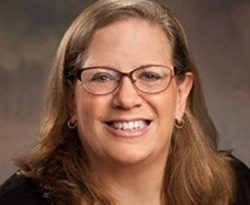
Michele Pedulla, DNP, APRN, CPNP-PC, CNE
Hear From Our Students
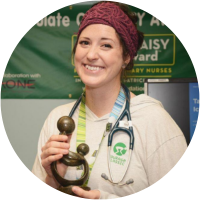
Frequently Asked Questions
Regis is a leading Catholic university in Greater Boston that has been preparing students for success since 1927 through cutting-edge technology and industry-focused curriculum that continues to evolve to meet the ever-changing needs of health care.
Our distinguished, personable, and doctorally prepared faculty provide a supportive, values-based nursing education integrated with a focus on holistic patient-centered care. Our online BSN to Doctor of Nursing Practice program incorporates insider perspectives on the leadership qualities the field demands to help you build the skills you’ll need to positively affect the field.
Our program offers several concentration options to allow DNP students to specialize their practice in their passions as they achieve their terminal degree in nursing.
The American Association of Colleges of Nursing (AACN) has endorsed shifting the minimum education level for advanced nursing practice from MSN to the DNP. As more nurses pursue DNPs than ever before, the rise in the number of DNP-holders has made doctorate-level education preferable to compete in the job market.
A doctorate in nursing may also prepare you for high-level positions and new career opportunities in health care, as well as higher earning potential.
Tuition
- $1025 per credit hour
- $182 Nursing clinical fee for CastleBranch
More information about online graduate nursing program tuition and fees, financial aid, payment options, etc., can be found here.
Yes. You may be eligible to transfer up to 9 graduate credits from a regionally accredited institution and accredited program. Courses should be 3 credits each with a final grade of a B- or better. Have more questions? Speak with an admissions advisor to learn more.
*Conditions may apply
The online BSN to DNP student will typically complete 600 hours of clinical practice. Credit and clinical hours may vary depending on chosen specialization.
Students have an option to space out clinical hours over 2-4 semesters, with approval from the program director.
Regis is proud to offer a 10% tuition discount on fully online programs for employees, members, and spouses of employees of our partner organizations.*
Regis College aims to help military, veterans, and their families to further their education. This is why we offer a 15% tuition discount to all active and reserve military, veterans, and military spouses for our online programs.
We’re also pleased to offer 15% off tuition on online programs to all federal government employees, and their spouses, working in any federal department.
A 10% Alumni discount is available to anyone who has graduated from Regis with a degree, excluding those who only received a certificate from Regis.
Two levels of graduate assistantships are offered at Regis, giving students the unique experience of gaining valuable professional skills while benefiting from financial aid opportunities.**
*Some exceptions apply. The Regis partnership discount cannot be combined with any other discount or scholarship offered by Regis.
**Graduate Assistantships are available to graduate students who are enrolled in a minimum of six credits within their graduate program and maintain a 3.0 GPA.
Online BSN to Doctor of Nursing Practice Resources

How Long is a DNP Program?
The DNP prepares graduates to excel in the field of specialized advanced nursing — including employment in clinical leadership, administration, and faculty positions.

What Can I Do with a Doctor of Nursing Practice (DNP)
Some nursing professionals choose to focus their careers on technical nursing disciplines, such as nurse education and administration, while others are more interested in clinical practice.

Benefits of Earning a DNP Degree
Because a DNP is a terminal degree and enables students to view health care from a top-down clinical perspective, graduates are often afforded a wider range of career options.

Can You Earn a BSN to DNP Online with No GRE Scores?
One trend defines the health care industry’s evolution: nurses continue to take on new roles entailing much greater responsibility.

Nurse Practitioner Career Advancement Options
Nurse practitioner career options can reach advanced levels that feature more responsibilities and higher earning potential..
Tuition and Fees
$1025
Per credit hour
$182
Nursing clinical fee for Castle Branch
Ways to Save on Your Tuition

Regis partner employees can receive a discount on their tuition. Find out if your employer is a partner.

Federal government employees as well as active and reserve military and veterans are eligible for a 15% discount on tuition. Find out more.

Regis alumni who have received a previous degree from Regis are eligible for a 10% discount on tuition. Speak to an advisor for more information.

We are here to support you through the process. Speak to an advisor to learn more.

Nurture your nursing career with Regis: Affordable loans for aspiring nurses.
Find out more.
Related Programs

Online Master of Science in Nursing

Online MSN to Doctor of Nursing Practice
